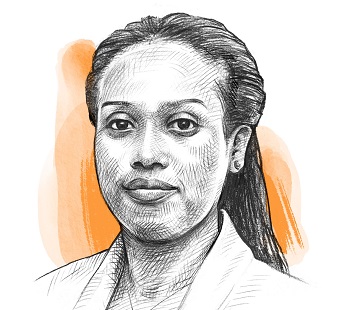Support Fund for Innovative Gender Initiatives in the Sahel
Objective
-
€5.5mBUDGET
-
01/01/2021PROJECT START
-
48 monthsDURATION
Gender inequalities, an issue in the Sahel
Burkina Faso, Chad, Mauritania, Niger and Senegal all have an institutional framework for gender equality. However, despite efforts to institutionalise and mainstream gender, the gender equality indicators remain low.
Local civil society organisations (CSOs), as key actors, provide fertile ground for giving women a greater role in public and civil life in the region. In this context, and in view of the political will of Sahel countries to strengthen gender equality, it is essential to build the capacities of CSOs so that they can contribute to this commitment. Indeed, while they are very active in these countries, they continue to face common barriers such as the lack of financing, a poor structuring, the lack of capacities in the field of gender and the low level of support for consultation mechanisms.
The Sahel Gender Fund Project aims to assist these organisations with their commitments to gender equality with financial support. The objective is to implement an innovative initiative, strengthen their technical and organisational capacities and build a network to share good practices and capitalise on their national and regional experiences.
Objectives of the FGS project
Launched in January 2021, the FGS project aims to strengthen gender equality in five Sahelian countries: Burkina Faso, Chad, Mauritania, Niger and Senegal.
Its specific objectives are to:
• Promote the emergence of initiatives to reduce gender inequalities with an integrated approach led by CSOs in the Sahel.
• Sustainably improve the capacities – socio-organisational, financial and in the field of gender – of the 21 CSOs in the Sahel.
• Contribute to improving the coordination between civil society actors and the capitalisation on good practices in the field of gender.
The strengthening of gender equality under the FGS project will also contribute to reducing poverty, achieving human development and lasting peace in the Sahel and developing more resilient, productive and inclusive economies.
The three components of the FGS project
The Sahel Gender Fund project is based on three operational components to promote the implementation of innovative initiatives.
Component 1: Support Fund for Innovative Projects
This component aims to bring about innovative initiatives led by local CSOs to reduce gender inequality.
A call for projects will select 21 local civil society organisations for innovative themes to bring about social change:
• Prevention and care in terms of gender violence, with a focus on violence in conflicts and as a result of conflicts (prostitution, early marriages), at school, in hospitals and at work, and with a focus on the prevention of female genital mutilation;
• Support for the equal participation of women and young women in the forums for mediation and crisis management, as well as in the forums for governance;
• Economic support for young women, in particular for school dropouts;
• Education in sexuality and equality;
• Access to and retention in school for young girls with a specific focus on the causes for dropouts and absenteeism related to gender (menstrual hygiene, marriage, early pregnancies…).
Component 2: Capacity building for the funded organisations
This component will strengthen the capacities of the structures selected via a participatory definition and implementation of a capacity building plan adapted to each organisation. To this end, each of the 21 CSOs selected during the call for projects will be assisted in conducting its diagnostic by the FGS project team and external service providers.
This capacity building will be implemented via the following activities:
• A participatory diagnostic of the internal needs and an analysis of the external issues related to gender in order to establish the indicators required for monitoring the progress of each action plan.
• Formulation of an internal action plan for each CSO depending on the priorities identified during the diagnostic.
• Implementation of the action plan: organisation of individual and group training workshops on specific themes (gender, fundraising, communication, advocacy, financial management…).
• A workshop to disseminate initiatives: sharing the outcomes achieved and good practices learned in each CSO.
Component 3: External coordination and capitalisation on experience
The networking of the various organisations selected is an important point for the project in order to facilitate the transfer of innovative methods of action, establish a dialogue on cross-cutting issues and strengthen regional coordination in the responses to the fight against gender inequality.
Synergies will be built between civil society actors through the organisation of participatory and multi-stakeholder workshops. In each CSO, focal points will ensure the continuity and sustainability of the work. A forum for exchanges will be created for this purpose. In the form of a virtual platform, it will be managed by the focal points and viewable by all the regional actors working in the field of gender equality.


